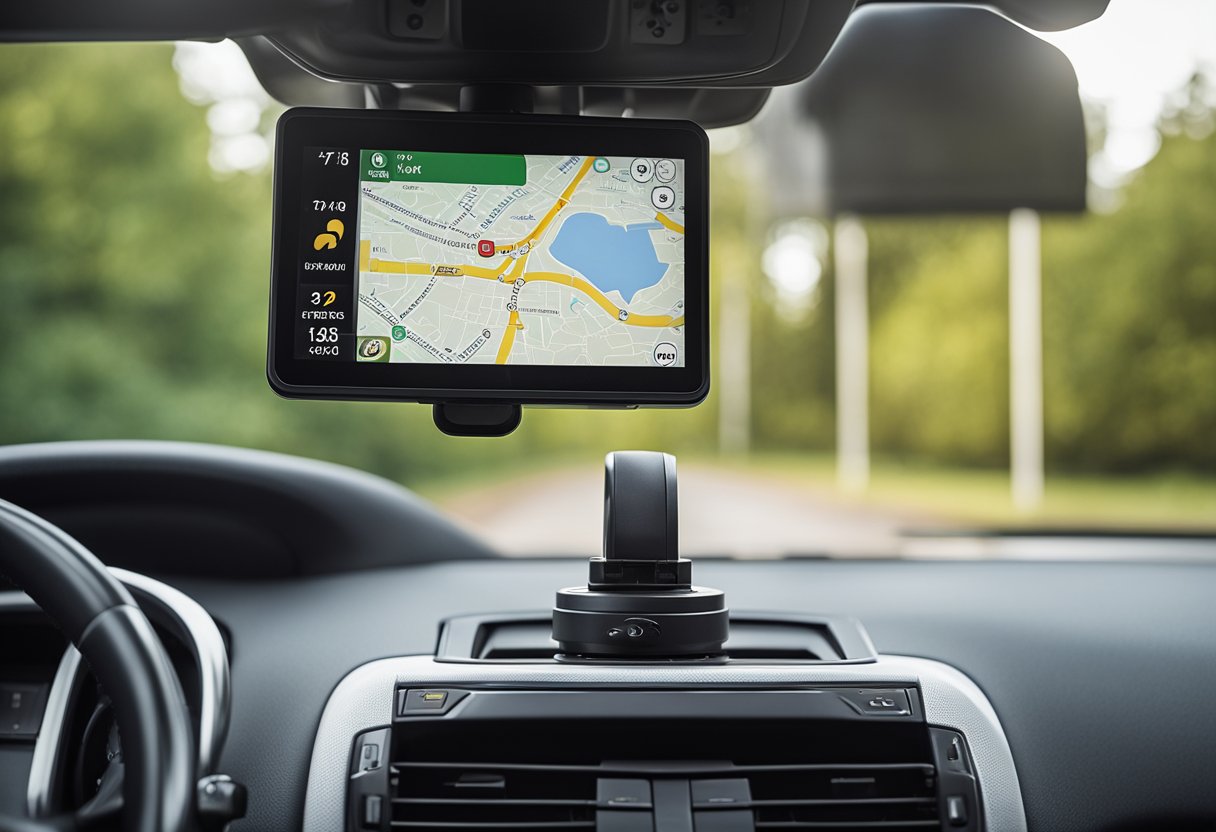GPS Security Tracker: Ensuring Safety and Peace of Mind for Your Valuables
How to start saving money
Lorem ipsum dolor sit amet, consectetur adipiscing elit lobortis arcu enim urna adipiscing praesent velit viverra sit semper lorem eu cursus vel hendrerit elementum morbi curabitur etiam nibh justo, lorem aliquet donec sed sit mi dignissim at ante massa mattis.
- Neque sodales ut etiam sit amet nisl purus non tellus orci ac auctor
- Adipiscing elit ut aliquam purus sit amet viverra suspendisse potent
- Mauris commodo quis imperdiet massa tincidunt nunc pulvinar
- Excepteur sint occaecat cupidatat non proident sunt in culpa qui officia
Why it is important to start saving
Vitae congue eu consequat ac felis placerat vestibulum lectus mauris ultrices cursus sit amet dictum sit amet justo donec enim diam porttitor lacus luctus accumsan tortor posuere praesent tristique magna sit amet purus gravida quis blandit turpis.

How much money should I save?
At risus viverra adipiscing at in tellus integer feugiat nisl pretium fusce id velit ut tortor sagittis orci a scelerisque purus semper eget at lectus urna duis convallis. porta nibh venenatis cras sed felis eget neque laoreet suspendisse interdum consectetur libero id faucibus nisl donec pretium vulputate sapien nec sagittis aliquam nunc lobortis mattis aliquam faucibus purus in.
- Neque sodales ut etiam sit amet nisl purus non tellus orci ac auctor
- Adipiscing elit ut aliquam purus sit amet viverra suspendisse potenti
- Mauris commodo quis imperdiet massa tincidunt nunc pulvinar
- Adipiscing elit ut aliquam purus sit amet viverra suspendisse potenti
What percentege of my income should go to savings?
Nisi quis eleifend quam adipiscing vitae aliquet bibendum enim facilisis gravida neque. Velit euismod in pellentesque massa placerat volutpat lacus laoreet non curabitur gravida odio aenean sed adipiscing diam donec adipiscing tristique risus. amet est placerat in egestas erat imperdiet sed euismod nisi.
“Nisi quis eleifend quam adipiscing vitae aliquet bibendum enim facilisis gravida neque velit euismod in pellentesque”
Do you have any comments? Share them with us on social media
Eget lorem dolor sed viverra ipsum nunc aliquet bibendum felis donec et odio pellentesque diam volutpat commodo sed egestas aliquam sem fringilla ut morbi tincidunt augue interdum velit euismod eu tincidunt tortor aliquam nulla facilisi aenean sed adipiscing diam donec adipiscing ut lectus arcu bibendum at varius vel pharetra nibh venenatis cras sed felis eget.
In a world where safety and security are top priorities, a GPS security tracker offers a practical solution. This technology allows for real-time tracking through the Global Positioning System, providing users with immediate updates on the location of vehicles, assets, or loved ones.
With features designed for both personal and business use, GPS trackers can be a vital tool for peace of mind.

User experience with these devices has vastly improved over the years. Today's trackers are compact, easy to use, and equipped with advanced features that ensure accurate tracking and location alerts.
Whether keeping tabs on a teenager, monitoring a fleet of company vehicles, or protecting valuable assets, these devices have become essential for many.
The benefits of using a GPS security tracker extend beyond mere tracking; they enhance safety and help prevent theft or loss. With the right device, users can rest easy knowing they have a reliable way to monitor what matters most.
Understanding GPS Trackers

GPS trackers are essential devices for monitoring the location of people, vehicles, and assets. They utilize the Global Positioning System to provide real-time data about movement and location.
This section covers the definition of GPS trackers, how they function, and the various types available.
What Is a GPS Tracker?
A GPS tracker is a device that uses satellite signals to determine its exact location. It collects data on the location and can send this information to a user’s smartphone, computer, or another connected device.
These trackers are commonly used for personal security, vehicle tracking, and monitoring assets. Many parents use them to keep tabs on their children, while businesses monitor fleet vehicles to ensure safety and efficiency.
How GPS Trackers Work
GPS trackers operate by communicating with satellites in space. They receive signals from multiple satellites to pinpoint their exact location. The accuracy of this location can vary based on environmental factors.
Data is transmitted in real-time or at set intervals, also known as the refresh rate. This means users can see updates about the tracked object’s location as it moves. Some advanced models can even provide speed and route information.
Types of GPS Trackers
There are several types of GPS trackers available, each suited for different needs:
- Personal Trackers: Used to monitor individuals, these devices are often portable and lightweight.
- Vehicle Trackers: Designed for cars, trucks, or fleets, these trackers help manage and secure vehicles.
- Asset Trackers: These keep track of valuable items like equipment or merchandise. They are commonly used in businesses.
Each type varies in features, such as battery life, size, and connectivity options to suit specific tracking needs. Choosing the best GPS tracker depends on the purpose and requirements of the user.
Key Features of GPS Security Trackers

GPS security trackers come with several important features that enhance their effectiveness and reliability. These include alert systems, battery life management, waterproof designs, and additional tracking capabilities. Each feature plays a crucial role in ensuring the safety and security of the assets being monitored.
Alert Systems and Notifications
Alert systems are vital in GPS security trackers. They help users receive real-time updates about their assets' status. These alerts can include notifications for unusual activities, such as unauthorized movement or impact detection.
Users often appreciate geofencing capabilities, which allow them to set virtual boundaries. If a tracked item crosses these predefined areas, immediate alerts are sent via SMS or app notifications. This enhances the ability to respond quickly to potential theft or loss.
Alert options can vary, with many devices supporting customizable settings. This flexibility ensures the user receives relevant updates that matter most to their circumstances.
Battery Life and Power Options
Battery life is a key concern for users of GPS security trackers. Many devices come with rechargeable batteries designed to last for extended periods.
Some can operate for days or weeks on a single charge, depending on usage and power-saving features.
Power options may include both rechargeable units and those using replaceable batteries. This versatility allows users to choose a tracker that fits their lifestyle.
Additionally, advanced models may utilize 4G LTE or 5G connectivity to enhance battery efficiency while maintaining accurate real-time tracking.
Monitoring battery levels is important, and many trackers send alerts when power is running low. This feature enables users to recharge devices before they lose functionality.
Waterproof and Weatherproof Designs
Durability is critical for outdoor usage, making waterproof and weatherproof designs essential features. Many GPS security trackers are built to withstand harsh weather conditions. This ensures the device remains operational regardless of rain, snow, or extreme temperatures.
These rugged designs often meet specific IP (Ingress Protection) ratings. A higher IP rating indicates greater resistance to water and dust.
Users should look for trackers that boast these robust specifications, especially for outdoor use or in challenging environments.
A weatherproof design not only extends the device's lifespan but also enhances its reliability. Users can trust that their devices will function properly under various conditions.
Additional Tracking Features
Advanced GPS security trackers offer a range of additional features to improve user experience. Real-time tracking is a standard capability, providing continuous location updates to users.
Some devices incorporate Wi-Fi positioning to enhance accuracy. This is particularly useful in urban settings or places with limited satellite visibility.
Other useful features can include impact detection, which alerts users of potential tampering or movement.
Users may also benefit from access to comprehensive tracking reports. These reports can summarize movements, geofence breaches, and other valuable insights about the monitored asset's behavior over time. This detailed data empowers users to make informed decisions about their security strategies.
Selecting the Right GPS Tracker for Your Needs

Choosing a GPS tracker involves understanding various aspects such as subscription services, compatibility with devices, affordability, ease of use, and the specific features of popular models on the market. Each of these factors plays a crucial role in helping individuals find the right tracker for tracking vehicles, pets, or personal items.
Subscription Services and Fees
Most GPS trackers come with subscription services that keep their features active. Prices for these subscriptions can vary widely based on the service provider and the level of tracking offered.
Monthly fees can range from as low as $10 to over $30, depending on the features included.
Some devices may offer discounts for annual payments, with prices dropping significantly. For example, a tracker might charge $15.95 monthly but only $12.95 when paid annually.
Additionally, certain brands like Tracki and Bouncie provide comprehensive services for vehicle tracking at competitive prices, ensuring value for the money.
Affordability vs. Value
It is essential to weigh the affordability of a GPS tracker against its overall value.
Some budget-friendly options, like the Apple AirTag, offer basic tracking capabilities but might lack advanced features that come with pricier trackers. For example, a device priced around $29.95, such as the Bouncie GPS Tracker, includes real-time tracking and alerts, justifying its higher cost.
When assessing options, users should look for lifetime warranties and customer support. Often, spending a bit more initially can yield a more reliable and effective tracking solution.
The right choice balances both affordability and long-term value, ensuring the user gets the features they need without overspending.
Ease of Use and Installation
Ease of use is critical when selecting a GPS tracker. Many modern devices feature plug-and-play setup, making installation straightforward.
Users can often start tracking within minutes without any technical skills.
Devices like the LandAirSea 54 GPS Tracker promote user-friendly design, allowing easy attachment to various surfaces. Moreover, mobile apps linked to these trackers should offer intuitive interfaces for monitoring. Features such as real-time alerts, location history, and easy navigation further enhance the user experience.
Comparison of Popular GPS Tracker Models
When comparing popular GPS tracker models, several factors should be considered.
- SpyTec GL300 is known for its robust tracking capabilities, while Vyncs offers detailed reports for fleet owners.
- Bouncie Car GPS Tracker is ideal for personal use, featuring real-time updates.
- Tracki boasts worldwide coverage, making it versatile for travelers.
- Brickhouse offers advanced security features, ensuring comprehensive tracking.
Each model caters to different needs, so identifying the required features is essential. Users should read reviews and gather data on performance to determine which model aligns with their needs best.
GPS Tracking for Vehicles

GPS tracking technology provides significant advantages for vehicle owners. It enhances security, monitors vehicle performance, and ensures proper maintenance. Understanding its various benefits can help owners better manage their vehicles and protect their investments.
Benefits of Vehicle GPS Trackers
Vehicle GPS trackers offer numerous benefits. They provide real-time location data, which allows owners to track their vehicles anytime. This is particularly useful during trips or when parking in unfamiliar areas.
These devices can also improve driving habits by monitoring speed and routes taken. This information can help owners make informed decisions about their driving styles and patterns. Many GPS systems also include features for tracking history, which is essential for fleet management or personal usage.
For added safety, some GPS trackers come with alerts. These notifications can inform owners of unauthorized movements, helping to prevent theft before it occurs.
Monitoring and Reporting Vehicle Activity
Monitoring vehicle activity is easier with GPS trackers. Many devices connect to the OBD-II port, providing insights into the vehicle’s performance and health.
This data includes engine status, emissions, and fault codes, enabling quick responses to potential issues.
Owners can receive regular reports about their vehicle's driving habits, fuel efficiency, and overall performance. This information can help increase reliability and efficiency, leading to lower maintenance costs over time.
Some systems even allow drivers to access analytics through a mobile app, offering a user-friendly experience. Being informed about vehicle activity enables better decision-making regarding repairs and usage.
Theft Prevention and Recovery
Theft prevention is a major reason for using GPS tracking devices. When a vehicle is stolen, owners can quickly locate and track it. Many devices come with features like geofencing, sending alerts if the vehicle leaves a predetermined area.
If a vehicle does go missing, these trackers assist law enforcement in recovery efforts. Quick access to GPS coordinates can significantly increase the chance of retrieving a stolen vehicle.
Additionally, some GPS trackers have built-in immobilizers. This feature allows owners to disable the vehicle remotely, preventing thieves from driving away.
Vehicle Health and Maintenance Alerts
Keeping a vehicle in good condition is essential for safety and longevity. GPS trackers can monitor vehicle health by providing alerts for maintenance needs.
These systems notify owners when it's time for oil changes, tire rotations, or other essential services.
By paying attention to these alerts, vehicle owners can avoid costly repairs due to neglect. Regular maintenance ensures reliable performance and minimizes emissions, aiding in environmental conservation.
Furthermore, the data collected from the OBD-II port allows for comprehensive tracking of vehicle data. This information helps drivers understand their vehicle's health better and take action when needed.
Advanced Considerations and Legalities

When using GPS security trackers, it is important to consider user interface design, legal implications, and safety features. These elements play a crucial role in ensuring effective tracking and compliance with laws.
User Interface and Software Compatibility
A user-friendly interface is essential for effective GPS tracking. An intuitive design allows users to navigate easily and access features without hassle.
Compatibility with various devices, such as smartphones and tablets, enhances usability.
Most GPS trackers provide apps that support both iOS and Android platforms. Features to look for include real-time tracking, historical data, and customizable alerts.
Subscription costs vary, often depending on the range of features offered. Users should assess their needs against subscription fees to determine the best fit for their tracking purposes.
Legal Implications of Using GPS Trackers
GPS trackers come with specific legal obligations that users must understand. Consent is a major consideration; tracking an individual without their knowledge can lead to legal issues, including allegations of stalking or invasion of privacy.
In many states, users must inform individuals being tracked, especially in workplaces.
Legal guidelines also cover data security and privacy. Companies should ensure that tracking data is protected from unauthorized access to comply with regulations.
Understanding the laws regarding GPS use in emergencies is also critical, especially if law enforcement becomes involved during an incident.
Emergencies and Safety Features
GPS security trackers often include features that enhance user safety during emergencies. For example, many devices have built-in SOS buttons that send alerts to designated contacts or emergency services instantly.
Some trackers provide three standard alerts: accident detection, roadside assistance, and emergency notifications.
These alerts can transmit real-time updates every minute, ensuring that help is on the way.
Compact designs make it easy to install hardwired GPS trackers in vehicles without occupying much space. Such features not only improve safety but also provide peace of mind for users in critical situations.
Non-Vehicle GPS Tracking Applications

GPS trackers serve many purposes beyond vehicle tracking. They offer peace of mind for personal safety, pet security, and even industrial management. Each application is tailored to meet specific needs and enhances the ability to monitor movements effectively.
GPS Trackers for Personal Use
Personal GPS trackers can significantly impact daily life. They allow individuals to monitor the whereabouts of family members or friends, providing reassurance, especially for children or elderly adults.
Many devices come with features like speed monitoring and alerts for erratic driving behaviors.
These devices can attach easily to bags or clothing, allowing for discreet monitoring. Users can set up geofences to receive alerts when someone enters or exits a designated area, helping maintain safety during curfew hours.
Ensuring the Safety of Pets and Valuables
GPS trackers are also valuable for pet owners. These trackers can be attached to a pet’s collar, allowing owners to locate their furry friends quickly.
Knowing a pet’s location offers peace of mind, especially if they tend to wander.
In addition, GPS devices can protect valuable items, such as laptops or luggage. With a magnetic mount, these trackers can be hidden in bags or stored in vehicles.
This feature ensures that valuables can be monitored for unauthorized movement, enhancing security during travel.
Industrial and Commercial Uses of GPS Trackers
In industrial settings, GPS trackers play a crucial role in logistics and equipment management. Companies can monitor the movement of goods and vehicles in real time. This improves efficiency and reduces theft.
These devices are also used to track equipment across job sites. This tracking can prevent loss and ensure that valuable machinery is where it needs to be for optimal productivity. Advanced features enable companies to analyze movement patterns. They can also optimize operations based on real-time data, allowing for better management of resources.



